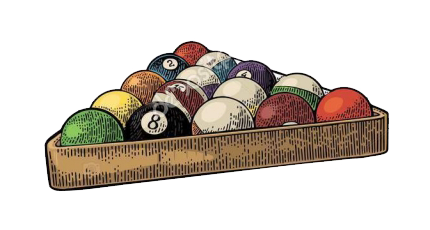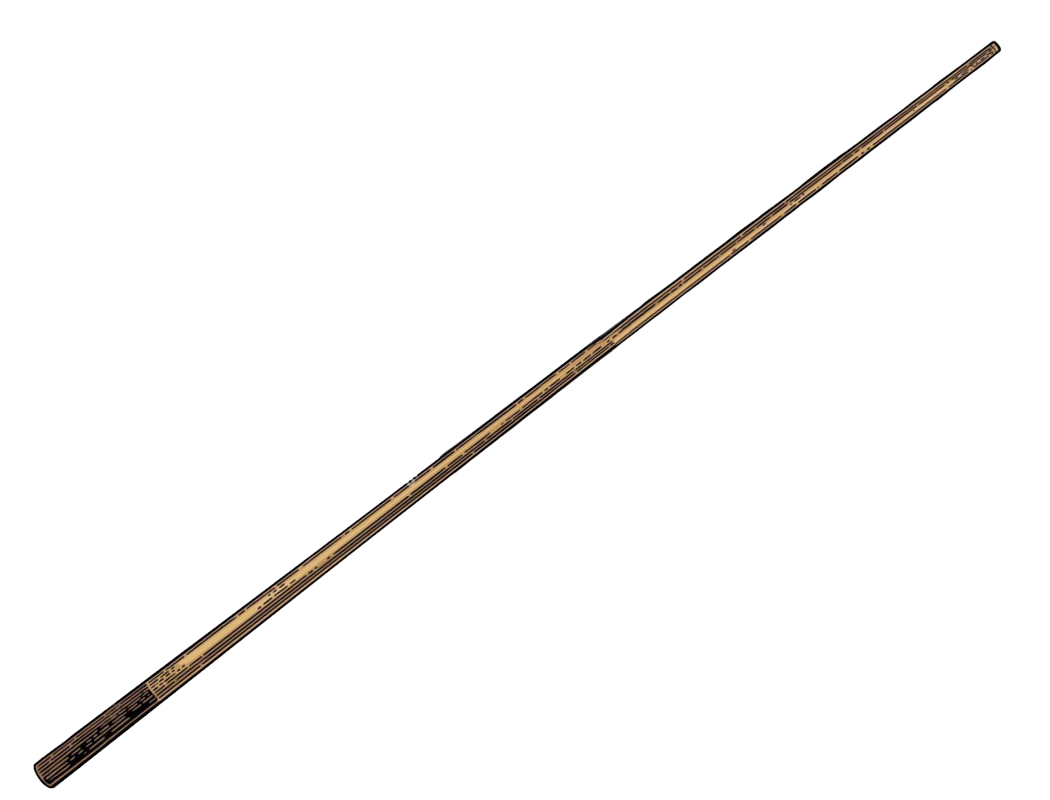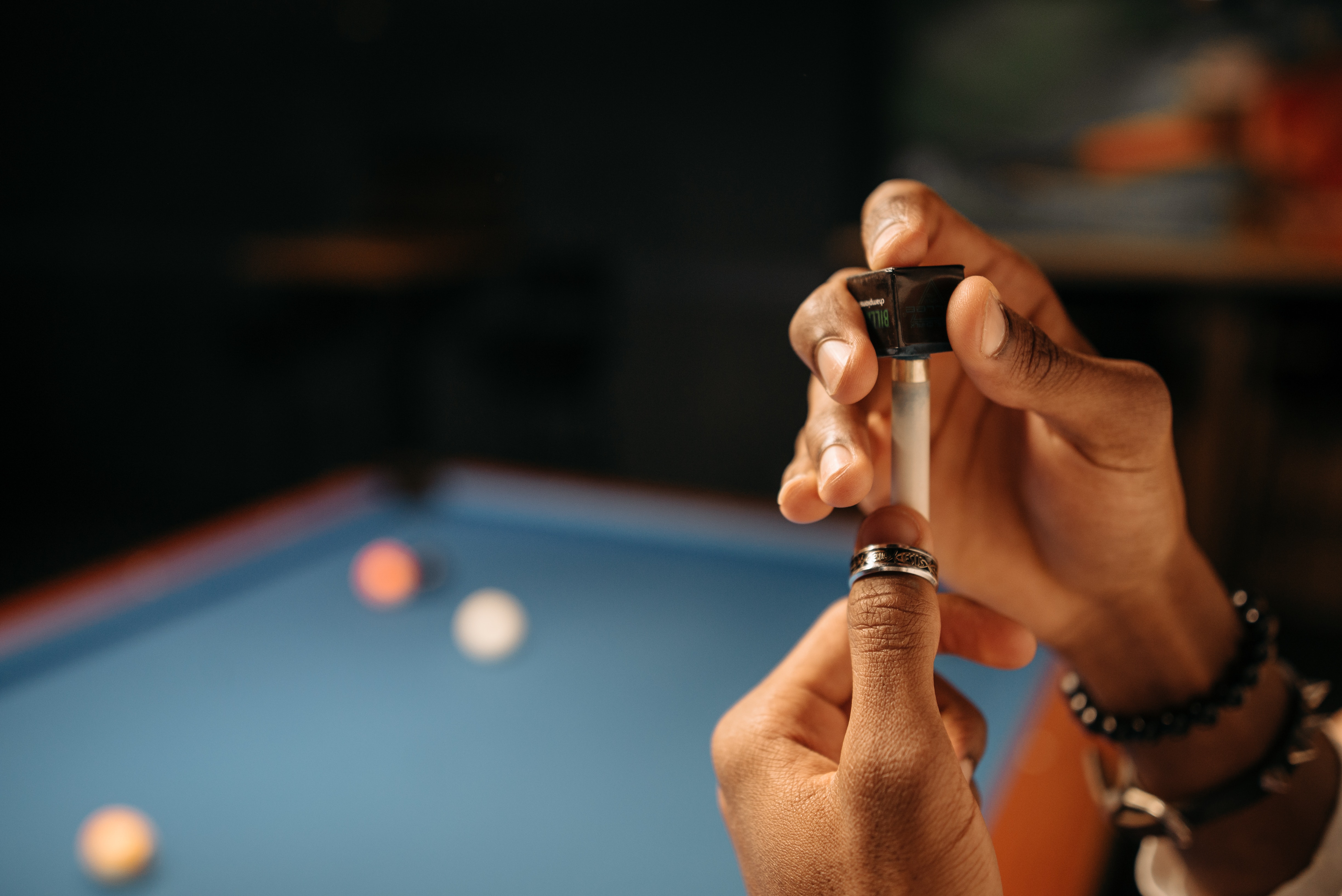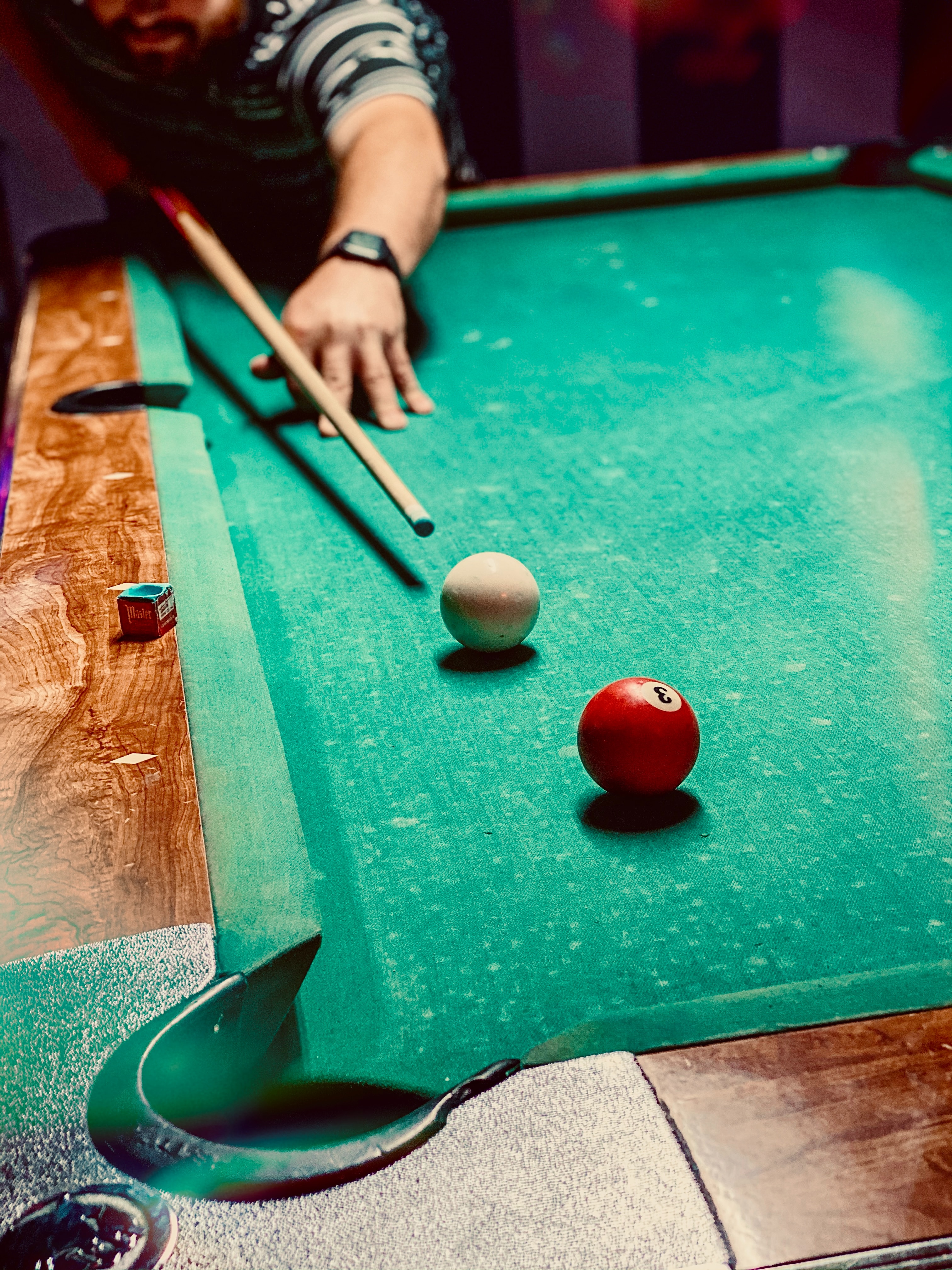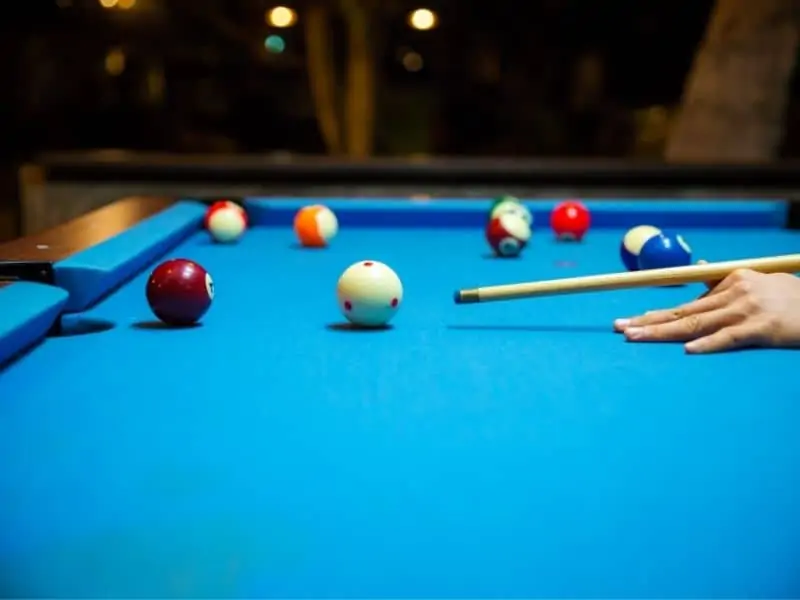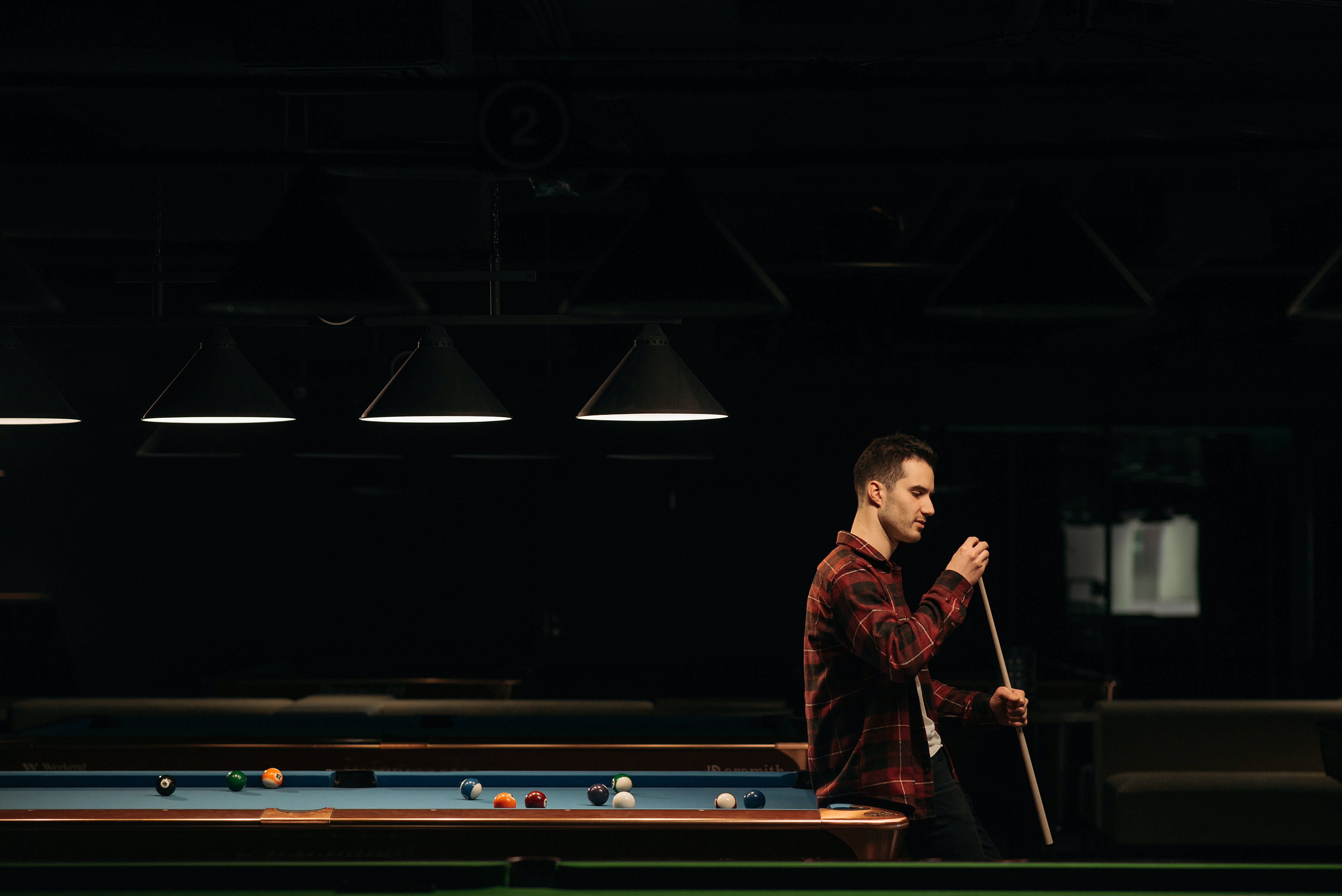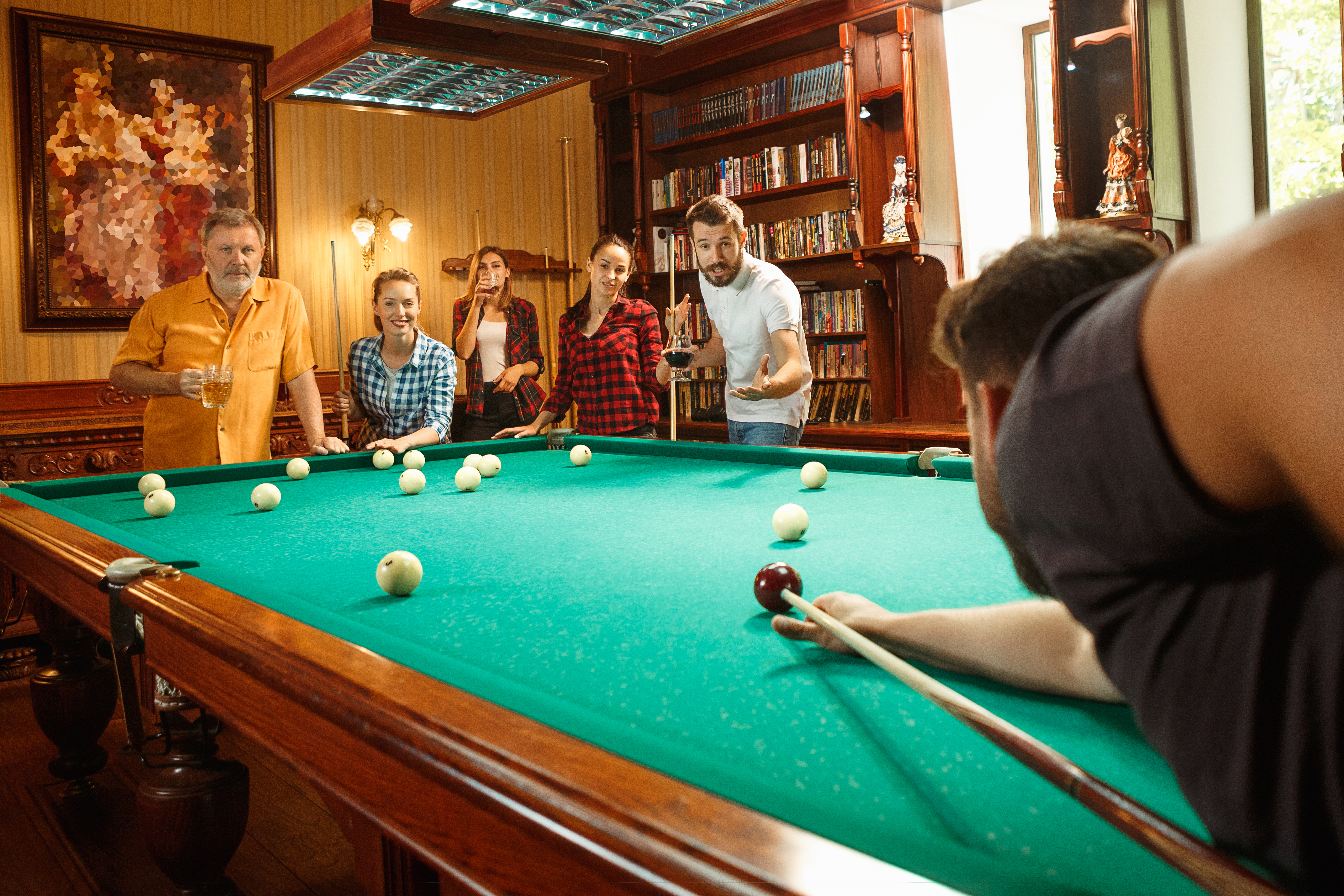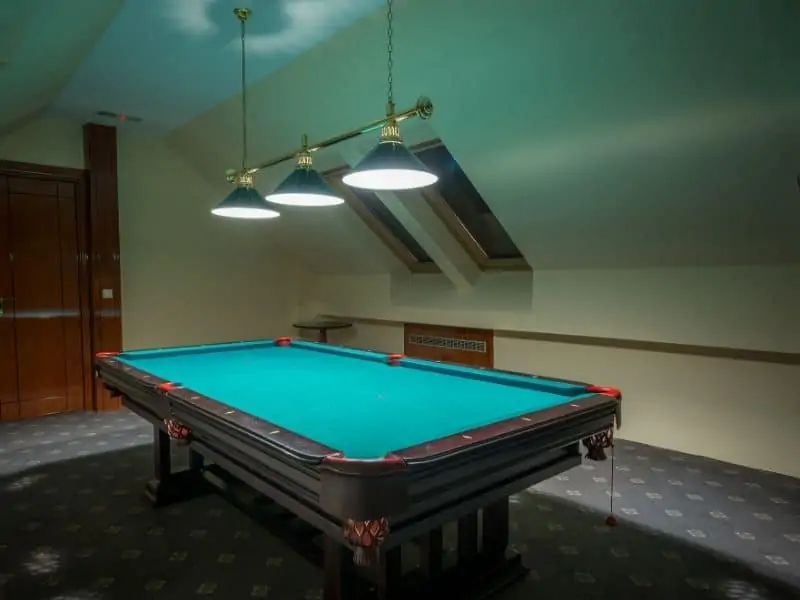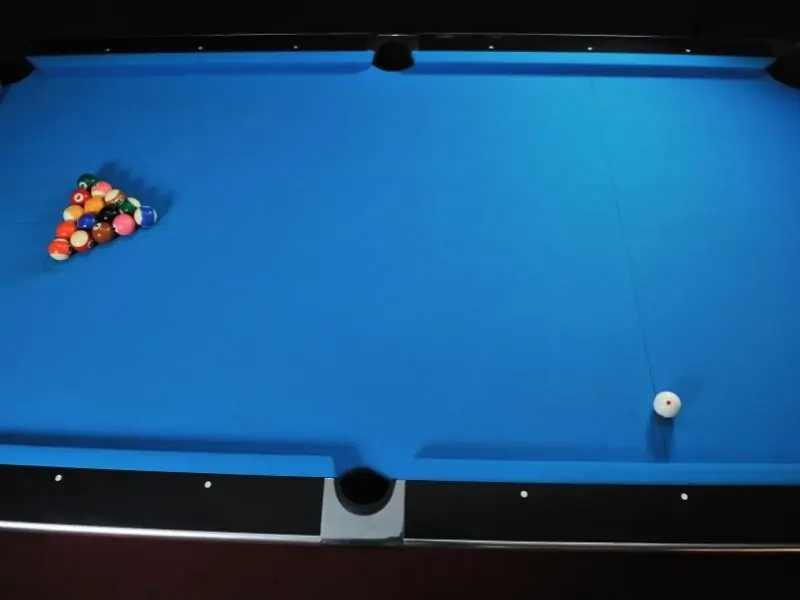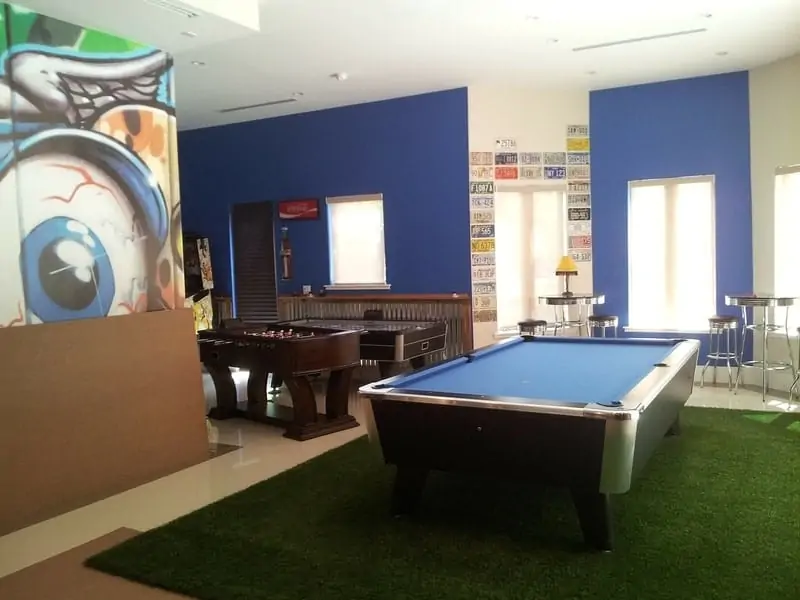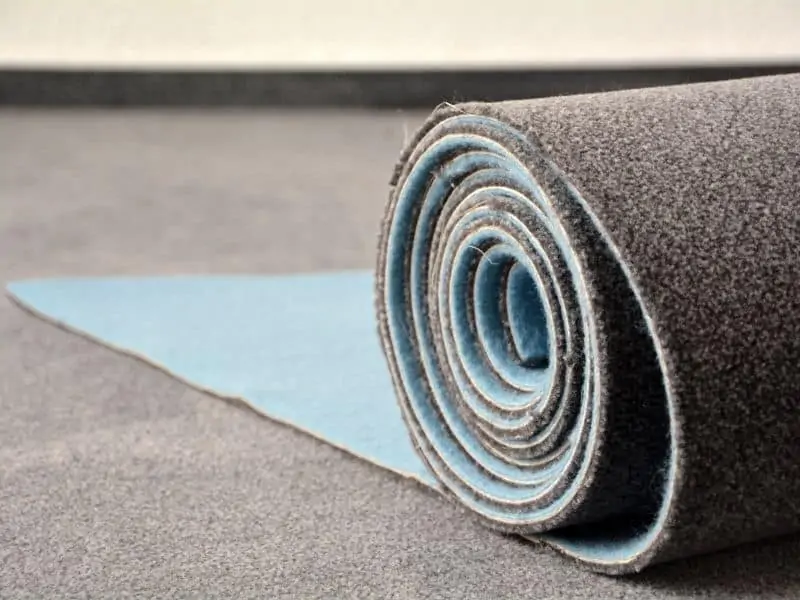Blue, green, brown, gray, and even gold. What’s with all the different colors of pool chalk? Most players use blue chalk, so does that mean you should, too? Some people seem to think that each different color of chalk has different characteristics. This begs the question: Does pool chalk color matter?
As far as performance goes, the color of the chalk you use doesn’t matter. When you have two pieces of chalk, say red and blue, and they’re of the same quality, which one you use doesn’t matter. They both do the same thing. But, the quality of the chalk does matter, to an extent. And for some people, chalk color is important.
When Does Pool Chalk Color Matter?
More than anything else, pool chalk color is a matter of preference. Many people prefer to play with chalk that’s the same color as their billiard cloth. So green cloth needs green chalk. Blue needs blue, and so on.
This is because, when the chalk and cloth (sometimes called felt) are the same color, the chalk marks on the table aren’t as noticeable. This gives the table the illusion of cleanliness. And I don’t care how careful you are, it’s impossible to keep chalk marks from getting on the billiard cloth. Unless, of course, you don’t use chalk! But that’s never a good idea.
So imagine if you had red chalk and blue cloth. Those red chalk marks would stand out like sore thumbs. That’s why some people prefer to have a particular chalk color.
Why Blue Chalk on Green Pool Tables?
If you think about it for a moment, you’ll realize that most pool halls have blue chalk on green tables. You would think that the pool hall would like to have green chalk so their tables look nice all the time.
There’s a reason for the blue chalk. Mostly it’s because blue and green tend to mix well. You’ll notice blue marks on a green table, but they’re not that much different. Plus, blue chalk works well on the two most popular table cloth colors: blue and green.
Part of it is also tradition. Why change from blue chalk to something else when blue chalk works just fine? No reason, really. Unless you change your pool table cloth color.
What Exactly Does Chalk Do?
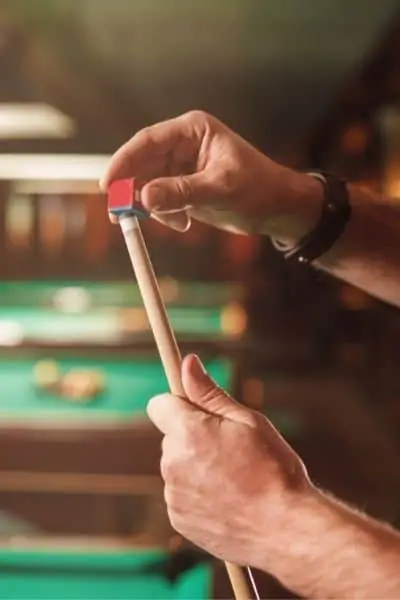
Now that you know that chalk color doesn’t have an effect on your game, you may be wonderingwhat chalk does. Essentially, chalk provides friction between the cue tip and the cue ball. If you look at the cue ball and the cue tip, you can see that they’re both rounded.
Cue balls are very rounded, very smooth, and are made to exacting standards.
And cue tips — especially when they’re new — are very rounded and pretty smooth. In fact, many people use ascuffer/shaperfor their new cue tips to help them hold chalk.
This tells you how important chalk is for billiards games. Without chalk, your chances of a miscue increase drastically. That’s why it’s important to have chalk around, even if it isn’t the same color as the pool table cloth.
How Often Should You Chalk Your Cue?
Some high-quality chalk allows you to only chalk your cue once in a while. Some people say that they’ve gone whole games having only chalked their cue once withKamui chalk.
But for most chalk, you should apply a new layer before every shot. Some chalk comes off on the cue ball when you strike it, and some chalk comes off due to the force of the shot and ends up on the table.
Unless you have some specialty chalk, you can generally rest easy knowing that you’re not putting too much chalk on your cue if you chalk before each shot. Of course, this also depends on thecorrect application of the chalk.
How Much Does the Quality of the Chalk Matter?
The quality of chalk you use is only going to matter to a point. Most chalks, no matter their price range, perform the same function: allowing you to add friction between the cue tip and the cue ball.
The feeling most players have is that the quality of the chalk doesn’t matter. What does matter is your skills as a pool player and your confidence. However, some players swear by one brand of chalk and use nothing else.
Really, this comes down to personal preference. The power of the mind when it comes to pool is amazing. If you feel like you’re not doing well with one chalk and switch to another, it could be just the thing you need to pick your game back up. But this has more to do with your mindset than it does chalk.
In fact, researchers at Colorado Statecompared different chalksand found only minor differences.
What Different Color Chalks Are Available?
There are a ton of different chalk colors available out there. Master, one of the most well-known pool chalk companies, has many different color options. These include:
- Black
- Blue
- Brown
- Gold
- Green
- Gray
- Rust
- Sky Blue
- Spruce
You can get any of thesechalk colors here.
Should You Buy Cheap or Expensive Chalk?
The kind of chalk you buy depends on you. For most players, a few bucks for a box of Master chalk is just fine. But for others, Predator or Kamui chalk is the best option.
I suggest experimenting to see if you prefer one type of chalk over another. In pool, even a little bit of confidence through equipment can help you play your best game.
In Conclusion
There’s no real difference between pool chalk colors. But there is a bit of a difference between chalk quality. However, for most people, the minor differences in chalk quality aren’t enough to make that much of a difference in their game.
The color of pool chalk you choose should be based on the color of your cloth if you want the chalk to blend into the color of the table. Otherwise, just go with the chalk you know, and that works for you.
Other Articles You May Be Interested In:
- Best Pool Cues for the Money: Discover the top pool cues that offer great value without breaking the bank.
- Pool Table in the Garage? Here’s What You Need to Know: Understand the essential considerations for setting up a pool table in your garage.
- Break Cue vs Playing Cue: What’s the Difference?: Learn the key differences between break cues and playing cues to enhance your game.
- How Much Does a Good Pool Cue Cost?: Explore the factors that determine the cost of a high-quality pool cue.
- Are Mini Pool Tables Worth It? A Complete Guide: Read our comprehensive guide on mini pool tables and decide if they’re the right fit for you.
